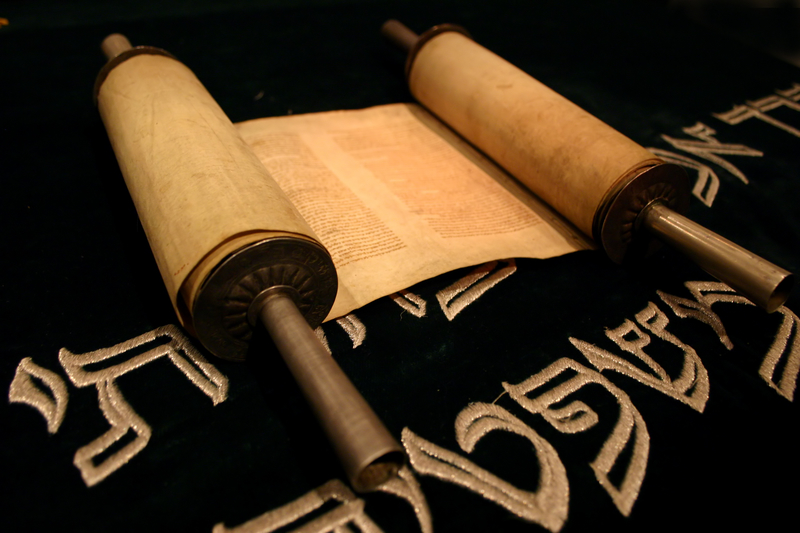
It is obvious from the teachings of our Sages that the expedition to scout the land was fraught with spiritual danger. We are taught that there were 12 tribal leaders selected for this task. R. HaAri teaches that it is possible for one to be assisted in a spiritual endeavor by a righteous soul from a prior era in completing the task.
This is in the secret of עיבור or an attachment of a soul of the past to an individual - to assist the latter in a particularly challenging task or Misva. The sons of Yaakov were advised during their initial meeting with Yoseph that they indeed were destined to serve in the capacity of עיבור to the souls of the spies. He advised מרגלים אתם - You will be coming back to the world at an important juncture in history to serve and assist the spies upon entering the land. R. HaAri (SP & LT Shelah) explains that the existence of 12 additional respective souls that were attached to accompany the 12 tribal leaders is hinted at in the initial verses of the parasha.
In describing the tribal heads in Parashat Bemidbar they are simply referred to as אלפי ראשי ישראל הם the heads of the tribes of Israel - while here they are specifically called ראשי בני ישראל המה - This is to notably call out their new spiritual association with their ancestors or the literal Sons of (Israel) Yaakov. Furthermore the verse repeats the fact that there is one scout per tribe איש אחד איש אחד - no doubt to impress upon that besides the one man from each tribe - there is a parallel soul that will accompany them on the expedition.
It appears to me that this is the secret behind R. Akiva's assertion in the Talmud (Yerushalmi - Sotah 7:5) that each leader had an assistant accompany him. While eleven of the tribal leaders were accompanied by an עיבור soul attachment of their forefathers - there was one הושע בן נון from the tribe of אפרים that did not have an עיבור to accompany him. Yoseph - the forefather of אפרים and יהושע would accompany only מנשה as the verse particularly indicates למטה יוסף למטה מנשה - Thereby Moshe from the tribe of Levi would have to arouse his own forefather Levi who did not have a share with his descendants in the land to act in the capacity as עיבור נשמה - on behalf of יהושע - Moshe as his Primary Rabbi - or his spiritual father was properly equipped for this task.
הושע has his soul spiritually attached to that of Levi - The soul of the latter rests on יהושע by the virtue of the letter יוד added to his name. Even with the assistance of their forefathers in the secret of עיבור - it was only כלב andיהושע - who succeed spiritually. Armed with this information - Let us try to explore their role and what might have contributed to their success as scouts.
The Inclination to Remain Leaders
We accept the assertion of the Zohar that what weighed on the tribal leaders to speak negatively about the Land of Israel was their desire to remain in power. They rightly assumed that upon entry into the Land they would apparently lose their positions of authority.
Others claim that the leaders were haughty and did not have sufficient humility to successfully scout the land. Due to these infractions 10 of the tribal leaders sinned and lost the soul attachments of their forefathers. As R. HaAri teaches (SG 5) when an individual sins he loses the עיבור that had previously been attached to him.
יהושע retained the עיבור of לוי בן יעקב andכלב retained the עיבור of his forefather יהודה - It is written regarding them in the Torah וחיו מן האנשים ההם - They remained alive - namely these two retained their עיבור - The Torah praises כלב and tells us specifically that his success was due to the fact thatרוח אחרת עמו - he retained an additional spirit. This a reference to that of יהודה - We hope to also show that יהושע retained hisעיבור of לוי as well.
The Strength of Yehoshua
We are told in the parasha that משה changed the name of הושע to יהושע with an additional יוד at the front of his name. Though it is contrary to at least one Midrash (BR 47:1) - I would like to suggest as others have that Moshe took the יוד from the word describing Moshe in Beha'alotekha as ענו or humble - It is written (12:3) without the יוד which Moshe transfers to הושע - The Talmud (Sotah 34) teaches that this name change was accompanied by a blessing bestowed upon by Moshe - י״ה יושיעך מעצת המרגלים - It is apparent that the reference in the blessing to the divine name י״ה parallels the new initial letters of יהושע - This of course was also the aspect of the divine name that assisted Yehoshua in the war against עמלק - As is written - כי יד על כס י״ה - It is interesting to note that it is specifically coinciding with the death of the generation associated with the spies which occurred at the end of the last year in the מדבר that we find the Torah reverting back towards the close of Sefer Devarim (Haazinu 32-44) and referring to him as הושע - Surely this was to advise us that he no longer had to fear any living negativity of the spies and the people influenced by them.
Furthermore, Yehoshua surely was allusive to the idea of losing political power upon entry into the land as had the other scouts. According to a view in the Talmud (San 17) אלדד ומידד had מתנבא that Moshe was to die and Yehoshua was to lead the people into the land. יהושע nevertheless rose up and beseeched Moshe to silence them. Henceיהושע - was content as a משרת of משה and was not fearful of losing his leadership role. Clearly the blessing and עיבור - along with the spirit of humility stemming from his own character and transferred to him by Moshe - were surely the reason for his success. He would be appropriately qualified to lead the selection and strategy of the two spies that would scout the land at the end of the forty years in the מדבר - as detailed in the book of Yehoshua.
The Strength of Calev
Armed with the עיבור of his forefather יהודה he ascends passed the נגב to חברון to pray. The Talmud (Sotah 34) points out the odd locution of the verse ויעלו בנגב And they ascended along the Negev ויבא עד חברון that he alone arrived in חברון - He alone arrives in Hebron to pray and if I might add to effectuate a Tikun there.
There is no question that he shared the qualities ofיהושע - especially that of humility - When he was chosen as one of the two spies that יהושע sends forty years later into יריחו - the Navi teaches that רחב hid him under the flax on the roof. The Midrash teaches that the word used is ויצפינו - namely only one who is hidden (humility) can be a proper messenger. His humility is overtly expressed in the Torah ועבדי כלב עקב היתה - connoting heal or one not haughty.
It can also possibly be said that since he is from the tribe of יהודה who were destined to rule as the Kings of Israel he did not succumb to the desire to remain in the מדבר to retain his lofty position. What should be noted is that there might have been an additional role that כלב was to play during his visit to חברון -
His Visit to Hebron - The Tikun of Eliezer, Servant of Abraham
A reading of the verses appear to point out two expeditions or at least a unique mission exclusively for כלב - While verse 13:21 reads that the scouts covered the entire area of the land of Israel the next verse is specific that ויעלו and they went up but only he ויבא עד חברון - went to Hebron. R. HaAri teaches that it was the soul of אליעזר the עבד כנעני of Abraham that had been reincarnated into כלב - It appears to me that he now returns to his master Abraham to continue his original task - beyond finding a wife for יצחק - Abraham had "complained" to God that his servant will inherit him. Yes he will! In fulfillment of his role as a messenger or scout of Hebron he will spiritually establish the city for the future rule of King David.
We are taught in Sefer Shemuel (See also our parasha 14:24) that the descendants of כלב inherit the city of Hebron. David marries אביגיל the widow ofנבל a famous Calabite - He lays claim to his position related to כלב - And gets coronated in Hebron as King of Judah seven years prior to his advent as King of Jerusalem.
The Spies noted that amongst the inhabitants in the land at the time were the "Giants" or the ילידי הענק - These needed to be spiritually neutralized by כלב during his term as a scout visiting Hebron. This is indeed what happened when his descendant (See DH 1 2:50-51) David's warriors slay four of them (SHEM 2 - 21) and he personally killed Golyat גלית - Furthermore I would like to suggest that it was in Hebron that אברהם agreed in the ברית בין הבתרים to have his children go through a rectification as slaves in Egypt and it was in Hebron that he was promised the land for his descendants.
I believe this is the secret behind the verse in our parasha that חברון was founded seven years prior to צען the "capital" of Misrayim - Namely that the rule that required Hebron to be visited and rectified by the servant of Abraham a formerעבד כנעני - was established even prior to the decree that Israel would have to go thru the slavery of Egypt. It appears to me that this was communicated to Abraham - as he himself recognized this when he said that דמשק will יוריש אותי - and only subsequently was informed about the slavery in Egypt.








